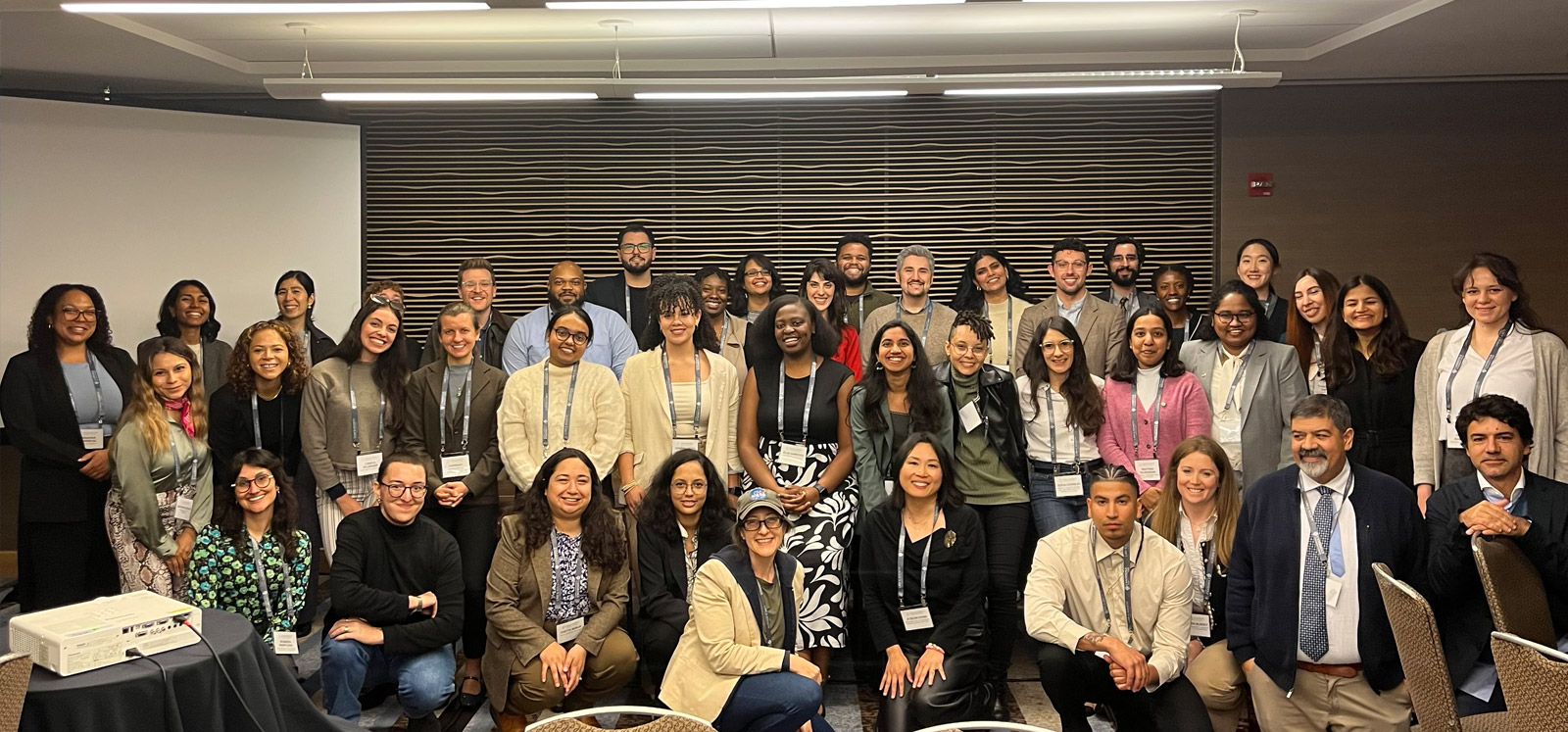PhD candidate - Niharika Salar - Law and Society Annual Meeting in Chicago
Attending the Law and Society Annual Meeting in Chicago this year was truly one of the highlights of my semester.

As someone increasingly getting interested in the law and society side of scholarship, and currently working on questions around Intellectual Property, cultural heritage, and textile traditions in India, it was incredibly refreshing to find a forum where these themes are in conversation across geographies, disciplines, and research methods. The conference theme, “Politics of the Body at the Crossroads,” added another layer of depth, prompting reflections on how law intersects with experiences in ways that go beyond theory.
My conference experience kicked off on a great note when my application was selected for the Graduate Student and Early Career Workshop; a thoughtful way to ease into the pace of things and start building connections right from the start. It created a space to connect with peers who are asking similar questions about methods, fieldwork, writing structure, and how we are all figuring out our academic interests as we go. What stood out was how much the value of the workshop extended beyond the formal sessions. Some of the most memorable insights came from informal chats over coffee, running over to the next session, or hallway conversations because you are reminded that you are not alone in feeling caught between treating law as a text and engaging with it as a social experience. The sessions themselves were also packed with practical advice, from navigating the academic job market to figuring out where and how to publish in law and society spaces, making it an incredibly grounding and energising experience.
My panel, “Language, Legal Culture, and Legal Scholarship” was a platform where I could speak about my ongoing PhD research on Geographical Indications and traditional textile communities. It was both affirming and challenging to present in front of a cross-disciplinary audience, some of whom were completely unfamiliar with the nuances of GI law, but deeply attuned to questions of power, recognition, and identity politics. The feedback from my chair and co-presenters was thought-provoking, especially in prompting me to think about how I frame “community” and what assumptions legal mechanisms like GIs carry when they claim to protect tradition.
Beyond the panels, what really struck me was just how wide-ranging and vibrant the socio-legal field is. You could start your morning in a session on constitutional courts in Brazil, jump into one on the criminalisation of migration, and wrap up the day in a roundtable on feminist methods. That kind of intellectual variety is something I have always admired about large-scale academic conferences. There is a sense that you are constantly learning, constantly being nudged out of your disciplinary comfort zone. Throughout the week, I kept coming back to this quiet reminder: my work isn’t happening in a vacuum. It’s part of a bigger, more interconnected conversation that is constantly being shaped by scholars across the world, all asking tough and urgent questions in their own contexts.
Media
PhD candidate - Niharika Salar
Find out more about my research on PURE.
